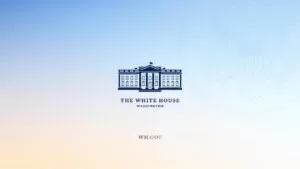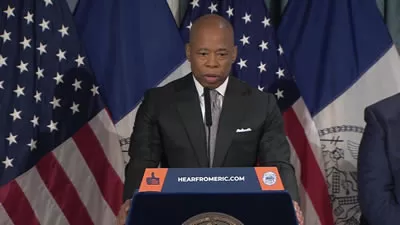As the Biden-Harris Administration reflects on its achievements at the United Nations, a closer examination reveals a mix of ambitious initiatives aimed at global cooperation and humanitarian efforts. However, from a Republican perspective, there are pressing concerns regarding the implications of these actions for American taxpayers, national sovereignty, and global security. The administration’s commitment to issues like gender equity, climate action, and international health raises critical questions about the effectiveness and accountability of these initiatives, particularly in the face of ongoing domestic challenges. Here are some crucial inquiries that demand attention as we consider the administration’s approach to international diplomacy and its impact on the United States.
FACT SHEET: Biden-Harris Administration Accomplishments at the United Nations
Since his first day in office, President Biden has been committed to restoring American leadership at the United Nations. Our world today faces many challenges that no one country can or should confront alone. But when the United States shows up and leads at the UN, we can rally global action to tackle problems that affect us all. That is why the Biden-Harris Administration has worked tirelessly at the UN to advance American values, safeguard human rights for all, and address conflict and instability. Alongside our allies and partners from around the world, we have worked with UN agencies to tackle the climate crisis, shape our digital future, and fight poverty and disease.
At a time of increasing geopolitical challenges and growing global needs, strong and effective American leadership at the UN is more critical than ever. The Biden-Harris Administration has worked to strengthen American leverage at the United Nations, uphold the UN Charter, and keep human rights at the core of the organization. Without robust American engagement, our competitor nations would gain leverage to advance their interests and values at our expense.
The Biden-Harris Administration has also been committed to reforming and adapting the UN to the needs of the 21st century. For example, President Biden announced a new U.S. openness to expanding the membership of the UN Security Council, including permanent seats for Africa and Latin America. The UN is not a perfect organization, but given the scale of today’s challenges, the world needs global institutions that are more inclusive and effective.
Over nearly four years, the Biden-Harris Administration’s leadership at the UN has delivered results for the American people. At the UN, we have:
Responded to Threats to International Peace and Security
- After Russia’s 2022 full-scale invasion of Ukraine, we worked at the UN to build support for Ukraine’s sovereignty and hold Russia to account. We rallied 141 countries in the UN General Assembly to condemn Russia’s violations of international law. We used UN Security Council debates to shine a spotlight on Russia’s illegal war and atrocities. We pressed the UN General Assembly to kick Russia off the UN Human Rights Council. We isolated Russia by denying it senior UN appointments and preventing its election to UN bodies.
- Responding to the security situation in Haiti, we partnered with Ecuador to obtain UN Security Council authorization of a new Kenyan-led Multinational Security Support mission.
- Working with African partners, we secured a UN Security Council decision to create in December 2023 a new mechanism to largely fund future African Union-led Peace Support Operations from the UN-assessed budget.
- Following the horrific October 7 Hamas terrorist attacks on Israel, we defended at the UN Security Council Israel’s right to defend itself and demanded the release of hostages. Also in the Security Council, we called for increased humanitarian assistance to Gaza and established a new UN mechanism to improve aid coordination. In July 2024, we secured Security Council endorsement of President Biden’s plan for a ceasefire and hostage release deal.
- As the Sudan conflict worsened, we mobilized action in the UN Security Council, including the adoption of a resolution in June 2024 demanding an end to the siege of El Fasher.
- Responding to concerns that Russia intended to deploy nuclear weapons in space, we and Japan proposed a UN Security Council resolution calling on countries not to develop such weapons.
- In 2022, we partnered with Ireland at the UN Security Council to reform, expand and strengthen humanitarian exemptions for UN sanctions.
- Working with the United Kingdom, we secured adoption of the first-ever UN Security Council resolution condemning the February 2021 military coup in Burma.
Protected and Upheld Universal Human Rights
- We rejoined the UN Human Rights Council in 2021, enabling the United States to once again lead multilateral efforts to hold accountable human rights violators worldwide.
- We issued a standing invitation to all UN thematic human rights monitors to visit the United States and assess our human rights record at home. In contrast to authoritarian governments, this invitation showed that a confident democracy is willing to have its record scrutinized and receive advice on strengthening rights protections for its citizens.
- We pressed for the release of a landmark report from the Office of the UN High Commissioner for Human Rights on human rights violations against Uighurs in China.
- We worked in the UN Human Rights Council to establish a new Special Rapporteur on Human Rights in Russia to examine Moscow’s crackdown on dissent at home and a Commission of Inquiry on violations and abuses in Russia’s war against Ukraine.
- We restored American leadership at the UN in defending the human rights of LGBTQI+ individuals around the world. This included participating in high-level meetings of the Core Group of countries advocating for LGBTQI+ rights, including a September 23 meeting where the First Lady represented the United States. We also secured the renewal of the mandate of the UN’s Independent Expert on Sexual Orientation and Gender Identity and urged the UN to release its first-ever organization-wide strategy on LGBTQI+ rights, co-sponsoring the first-ever Human Rights Council resolution on the rights of intersex persons, and convening the second-ever informal UN Security Council meeting on the rights of LGBTQI+ individuals.
- We spotlighted egregious human rights violations by North Korea, including by organizing the first briefing of the UN Security Council on North Korea human rights since 2017.
- We helped establish mechanisms through the UN Human Rights Council to investigate human rights violations and abuses in Ethiopia, Sudan, and Nicaragua.
- We worked at the UN to advance the global fight against antisemitism, including to ensure 36 countries and four multilateral organizations joined the U.S.-led Global Guidelines for Countering Antisemitism. In 2023, we convened a UN meeting on antisemitism with Second Gentleman Doug Emhoff and, in 2022, a roundtable at UNESCO.
- We advanced the UN’s work to promote racial equality, including by championing the inaugural session of the Permanent Forum on People of African Descent. We co-sponsored a UN General Assembly resolution designating July 25 as International Day of Women and Girls of African Descent.
- We engaged seriously with the human rights treaty body process, including through periodic reports about our domestic human rights record to the Human Rights Committee and the Committee on the Elimination of Racial Discrimination.
- Reaffirming support for the UN Declaration of the Rights of Indigenous Peoples, we pressed for enhanced participation of Indigenous Peoples throughout the UN system. In 2022, Ambassador (ret.) Keith Harper, the first-ever Senate confirmed U.S. ambassador from a federally-recognized tribe, was elected to the UN’s Permanent Forum on Indigenous issues.
- We supported efforts in the UN General Assembly to advance discussion of a proposed convention on the prevention and punishment of crimes against humanity.
- After assuming the presidency of the UN Convention against Corruption (UNCAC), we hosted the UNCAC conference in Atlanta, Georgia in 2023, with approximately 2,600 delegates, including an unprecedented 1,000 from civil society.
Advanced Gender Equity and Equality
- We restored American leadership in pressing at the UN for the rights of women and girls, advancing their inclusion in societies, and supporting strong language in UN resolutions and at the Commission on the Status of Women on sexual and reproductive rights.
- The January 2021 Presidential Memorandum on Protecting Women’s Health at Home and Abroad restored life-saving funding to the UN Population Fund (UNFPA).
- We announced that the United States will contribute for the first time to the UNICEF–UNFPA Global Program to End Child Marriage.
- Following the Iranian regime’s killing of Mahsa Amini and crackdown on protestors, we helped establish a new UN Fact-Finding Mission to investigate human rights abuses. We spearheaded efforts to remove Iran from the Commission on the Status of Women.
- In 2024, we reaffirmed the U.S. commitment to the 1994 International Conference on Population and Development Program of Action.
- We launched the Global Partnership for Action on Gender-Based Online Harassment and Abuse, which included actions at the UN to address online safety for women and girls.
Shaped Our Digital Future, Promoted Labor Rights, and Tackled Synthetic Drugs
- We sponsored the first-ever UN General Assembly resolution outlining principles for the responsible use of artificial intelligence (AI). This landmark resolution helped define a global consensus on safe, secure and trustworthy AI systems for advancing sustainable development.
- We hosted events at the UN on misuses of new technologies, such as countries using commercial spyware to surveil dissidents and journalists.
- We worked at the International Labor Organization (ILO) to empower workers worldwide and joined the ILO’s Equal Pay International Coalition to share best practices to close the gender wage gap.
- At the first Summit for Democracy in 2021, we announced the Multilateral Partnership for Organizing, Worker Empowerment and Rights (M-POWER), an initiative working with governments, trade unions, labor support, civil society organizations, and philanthropy to uphold and promote workers’ trade union rights around the world.
- In coordination with the UN Office of Drugs and Crime (UNODC), we launched and hosted at the UN high-level meetings of the Global Coalition to Address Synthetic Drug Threats and secured adoption of a UN General Assembly resolution to enhance international action to fight such drugs.
Strengthened Global Health Cooperation, Advanced Sustainable Development, and Bolstered Climate Action
- We redoubled efforts to support implementation of the UN’s Sustainable Development Goals, launching a U.S. Strategy on Global Development to accelerate progress and mobilizing $150 billion of U.S. funding and billions more from the private sector, philanthropic, and other donor resources.
- In 2021, we reversed the previous administration’s decision to withdraw from the World Health Organization (WHO), enabling the United States to shape the WHO’s work on global health and reform. With the WHO, we led the global response to the COVID-19 pandemic by launching the COVID-19 Global Action Plan and donating nearly 700 million vaccine doses to 117 countries.
- We hosted the Global Fund to Fight AIDS, Tuberculosis and Malaria’s 7th Replenishment in 2022, resulting in more than 75 governments, foundations, and corporations delivering pledges totaling a record $15.67 billion.
- We worked at the UN to advance universal health coverage, continue the fight against tuberculosis and mpox, and combat global antimicrobial resistance (AMR), including to push countries for commitments on AMR that are bold, aspirational, and implementable.
- We focused attention at the UN on addressing global food insecurity, repeatedly using the U.S. presidency of the UN Security Council to focus on the nexus between food security and conflict. We hosted at the UN ministerial-level meetings to generate new commitments to expand agricultural capacity and respond to famine with over 100 partner countries.
- U.S. Representative to the UN Ambassador Thomas-Greenfield and Secretary of the Interior Deb Haaland co-led the U.S. delegation to the 2023 UN Water Conference, where they announced more than $49 billion towards water security both at home and abroad.
- In 2024, Secretary Haaland co-led the U.S. delegation to the Fourth International Conference on Small Island Developing States (SIDS4), where we announced new efforts to enhance our partnerships with SIDS.
- After rejoining the Paris Agreement, we galvanized efforts at the UN to combat climate change, raising global climate ambition through countries’ enhanced national contributions, accelerated action to reduce pollution and greenhouse gas emissions, forward-leaning decisions at annual UN Climate Change Conferences, and major initiatives for ocean-climate action catalyzed by the annual Our Ocean Conference.
- Former Special Presidential Envoy for Climate John Kerry and Senior Advisor for International Climate Policy John Podesta have helped lead an all-out effort, including critical agreements at the UN Climate Change Conference COPs 26 and 28 to partner with countries to accelerate climate efforts worldwide and reduce global emissions sufficiently to limit warming to 1.5° Celsius.
- We advanced efforts within the International Civil Aviation Organization, the International Maritime Organization, and other multilateral organizations to reduce greenhouse gas pollution from the aviation, shipping, and other sectors.
Strengthened American Presence at the United Nations
- After a five-year absence, we rejoined the UN Education, Scientific, and Cultural Organization (UNESCO). This allowed us to partner with UNESCO to combat the scourge of antisemitism, support global Holocaust education, promote journalist safety, safeguard Ukrainian cultural heritage, bolster ethical uses of AI, and advance science education for girls in Africa.
- We led robust campaigns resulting in the election of U.S. citizens to key UN positions, including Doreen Bogdan-Martin as Secretary-General of the International Telecommunication Union (ITU), Amy Pope as Director-General of the International Organization for Migration (IOM), and Sarah Cleveland as Judge on the International Court of Justice (ICJ).
- We supported the appointments of highly qualified Americans to lead UN agencies, such as Ambassador Cathy Russell as Executive Director of UNICEF, Ambassador Cindy McCain as Executive Director of the World Food Program, and Ian Saunders as Secretary-General of the World Customs Organization.
- Co-chairing the UN Accessibility Steering Committee, we worked to make UN headquarters in New York more accessible for all delegates, including construction of a 24/7 entrance for wheelchair users and the installation of a lift so everyone can address the General Assembly from behind the official rostrum.
September 24, 2024 Washington DC
Here are four critical questions from a Republican perspective regarding the Biden-Harris Administration’s accomplishments at the United Nations:
- Funding Priorities: Given the substantial financial contributions to the UN and various global initiatives, how can the Biden administration justify these expenditures to American taxpayers, especially when many domestic issues—such as rising inflation and border security—remain unresolved?
- Effectiveness of Global Agreements: How does the Biden administration plan to ensure that international agreements, such as those addressing climate change and human rights, are effectively enforced and that countries like China and Iran are held accountable for their actions, rather than merely relying on diplomatic rhetoric?
- U.S. Sovereignty Concerns: In light of the administration’s re-engagement with international organizations, how does the Biden administration address concerns about U.S. sovereignty and the potential for international bodies to dictate domestic policies that could undermine American interests?
- Security Commitments: With the focus on global issues such as humanitarian aid and climate change, how does the administration reconcile these efforts with the need for a robust national security strategy, particularly in relation to threats posed by adversaries like Russia and China?
Sources: BigNY.com, White House WH.gov
#WhiteHouseRepublicanQuestion #UNandWH














